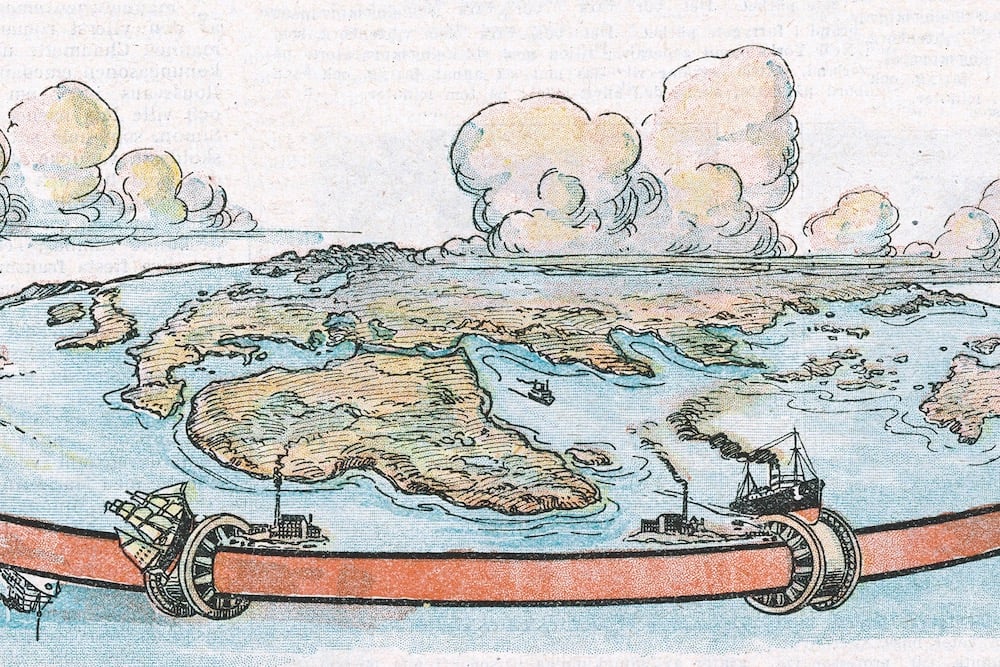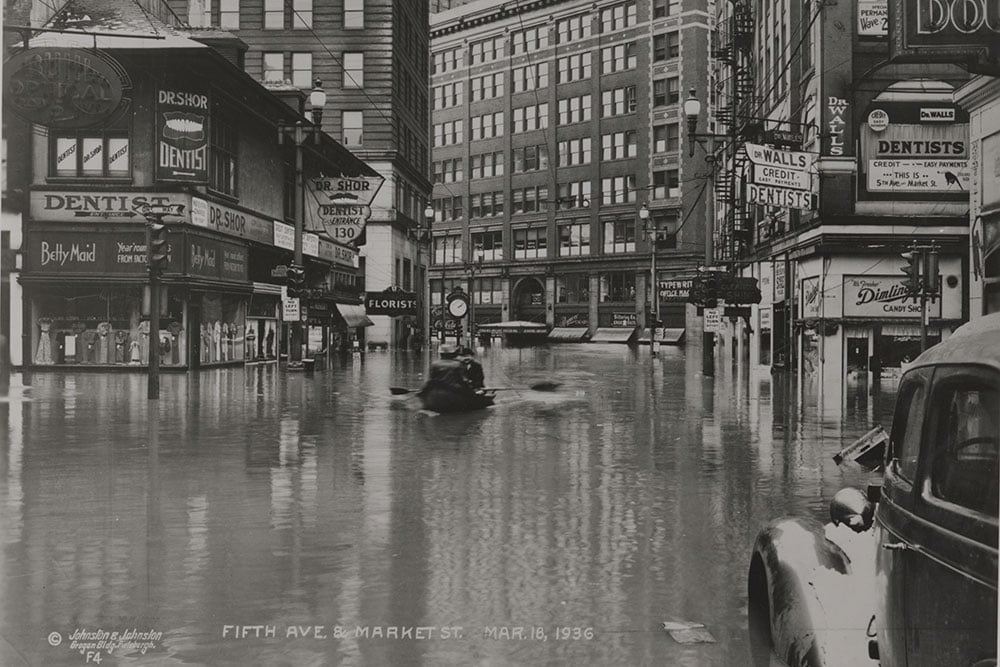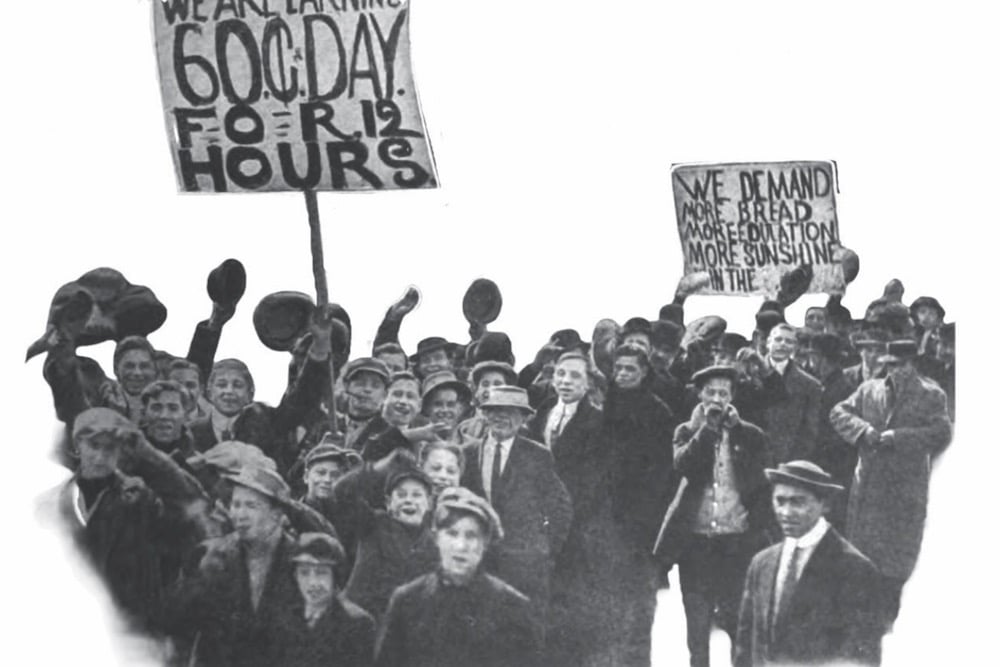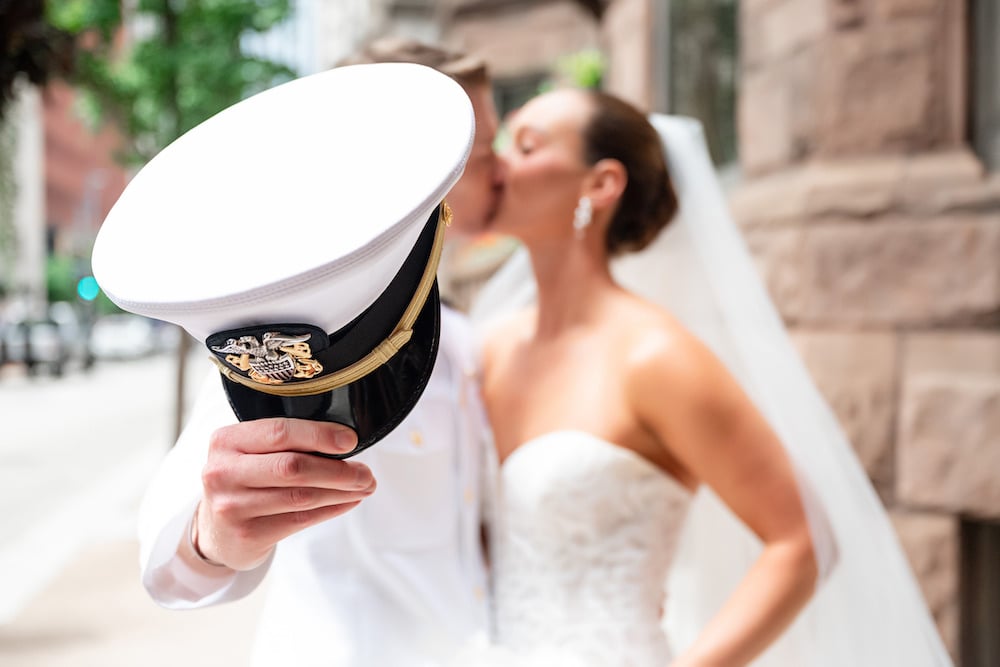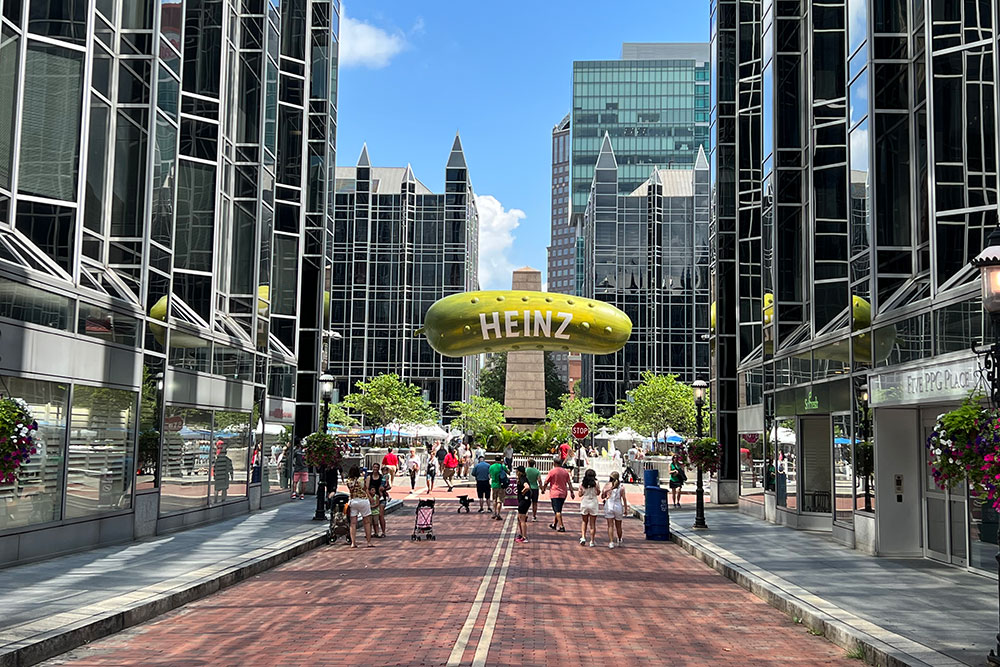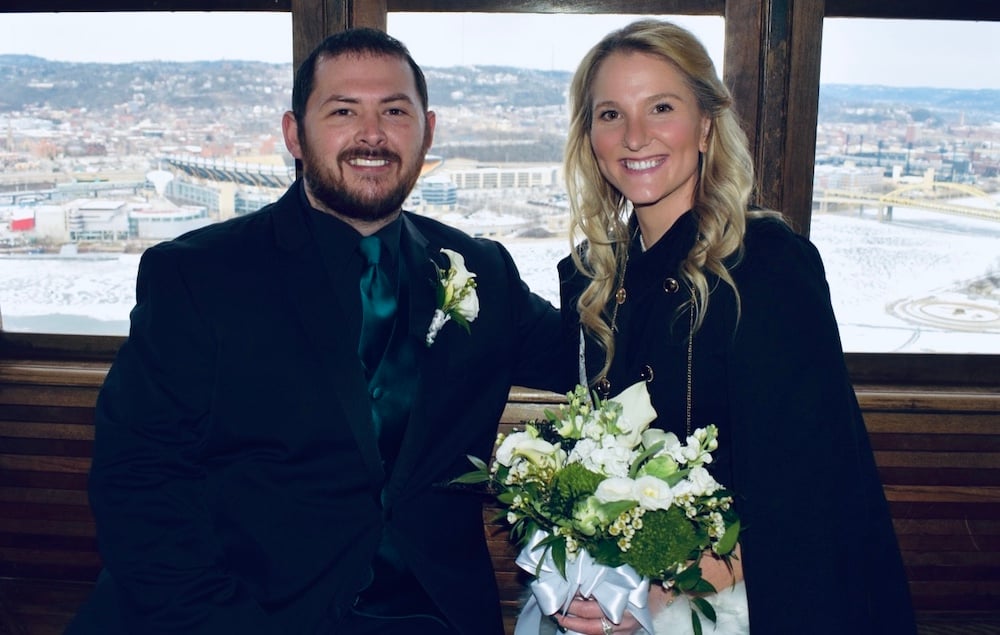Dahn Memory Lane: A Look Back at (Violent) Political Elections in Pittsburgh
While we don’t know what November will bring here in Pittsburgh, we can at least know that it won’t bring a chair-swinging, brick-throwing, shovel-wielding drunken election day battle royale.

IN 1902, THE DUQUESNE INCLINE WAS UNEXPECTEDLY SHUT DOWN FOR REPAIRS — ON ELECTION DAY | PHOTO BY HUCK BEARD
Forget winter, Ned Stark; I’ll tell you what’s coming. Something that should really generate intense trepidation and perhaps a touch of pre-traumatic stress disorder.
November.
November this year doesn’t just mean sweater weather, chili for dinner and entire families engaged in desperate games of Sunday afternoon musical chairs seeking the perfect karmic arrangement that will allow the Steelers to score. This year, November brings that most terrifying of traditions: A presidential election.
Stop screaming.
It seems the state of politics has reached a basement where, upon arrival, it decided to dig down in search of a new rock bottom. Elections used to be about decorum, respect, sportsmanship and properly reined passion for the greater good — battles waged and then conceded with magnanimity. The shaking of hands when what you really wanted to do was introduce your opponent’s face to your closed fist. Every year before 2016 was the good ol’ days in politics; we used to be a proper society, right?
Lies. The truth is that elections have always been arenas for animosity, to such a degree that even Aaron Burr and Alexander Hamilton would remark, “A bit much, is it not?” That certainly holds true for Pittsburgh’s election history. In fact, rarely did a day at the polls go by without accusations, violence, arrests and, yes, even our favorite — drunken fisticuffs.
Regular elections-related bedlam in Pittsburgh arrived with industrialization, with the Bloomberg Democrat reporting in 1868, “Pittsburgh politics are as dingy and dirty as her atmosphere.” In May of 1879, Allegheny County Republicans held a convention in a Downtown courtroom to nominate their candidates for jury commissioner and coroner. The packed, steamy, all-day meeting of hundreds of whiskey-guzzling men became so riotous that among the least-concerning occurrences were the fistfights that broke out with each round of voting. Tempers flared as the whiskey flowed; insults flew and knives were brandished. When revolvers were finally pulled from waistbands, a drunken stampede for the exit injured dozens. The next day, the headline atop the Pittsburgh Post’s gleeful hour-by-hour account of the mayhem declared, “Fearful Profanity, Horrible Sacrilege, and Disgusting Drunkenness.”
It wasn’t too long before Pittsburgh police began preparing for local elections as if the G-20 was coming to town. Despite these efforts, they were still overwhelmed, powerless or looking the other way in loyalty to one candidate or another. Our February 1904 elections illustrated just how dreadfully things could deteriorate. In a day marked with fighting, ballot-stealing accusations, sporadic poll closures and general disorder, two candidates for city council were actually arrested. One was detained along with six of his poll watchers for being “suspicious persons.” Another reportedly dragged a voter out of a booth and beat him.
This somehow wasn’t the worst threat of violence that day.
That ignominy belongs to a poll watcher in the 10th district, who was caught intimidating voters with a knife. The 1913 mayoral election showed that no lessons had been learned. Nearly a dozen independent detectives, reportedly in the Joseph Armstrong camp, were arrested for beating voters and visiting homes in the Hill District, where they threatened to arrest family members of voters.
Primary elections generated some of the worst violence. Such was the case in June of 1902, when a full-scale, as-seen-on-TV barroom brawl broke out in a Penn Avenue hotel when factions for opposing primary candidates began shouting out the names of the politicians they supported. As insults and fists flew, teamster John Broderick shot 26-year-old delegate William Larkin in the stomach, killing him.
In 1921, a fight between two sheriff’s deputies at a Wylie Avenue primary day poll location became so heated that one drew his revolver and fired a bullet into the shoulder of the other, luckily only landing the victim in the hospital. Things had not improved by the September 1927 primary, when two election officers were arrested for the murder of two young men who died from gunshot wounds during separate incidents of factional warfare.
The Strip District ward was often the hub of the most notorious election-related violence. During the 1925 aldermanic elections, despite dozens of police patrolling the Strip polls on registration day, violence traveled all the way from the Penn Avenue police station to the steps of the City-County building where a 150-person free-for-all broke out. The rioters’ weapons of choice were reported as “crank handles, hammers, brick-bats, revolvers, knives, and black-jacks.”
Many political skirmishes in the city involved odd choices of weaponry. There’s the 1879 Allegheny aldermanic elections that had poll judges fighting with shovels and pokers. (Who brings a shovel to a vote count?) In 1898, a member of a local election board went full WWE and swung a chair at a candidate who was attempting to watch the polls. In 1907, during a heated fight, one voter attempted to “open the dome” of another with his weapon of choice, a brick.
Fraud accusations were so rampant that it wasn’t unusual for whole election boards to be arrested and hauled in front of judges to answer for their actions. In September 1915, a whopping 155 members of local election boards were arrested for scheming to steal the election.
Some schemes could get pretty far-fetched. Candidate-loyal volunteers were known to provide free alcohol to voters at the polls, hoping to get them grateful or soused enough to vote the desired way; it reportedly often worked. In 1902, one party literally rolled a barrel of whiskey into a schoolhouse poll location where they cracked it open and offered anyone the chance to dip a cup or two in before voting. In 1905, the Pittsburgh Press wrote of the local elections, “Beer and whiskey are literally being poured out by agents of the [Hays] administration. Drunken men are to be seen everywhere. There is literally an orgy in the city.”
That is literally bananas.
In 1902, the Duquesne Incline was unexpectedly shut down for repairs — on Election Day. Accusations flew that the disruption in service was an attempt to prevent working-class voters from the South Side from accessing the voting booths up on Mount Washington.
During the days leading up to the 1979 elections in West Mifflin, a councilman used a public meeting to call out the current mayor’s poor attendance record, which he inexplicably declared was a result of the mayor experiencing “male menopause.” In 1909, a political meeting of clergymen in a church resulted in a supporter of mayoral candidate William Magee coming to blows with an adversary who called him ‘the dirtiest butter-in” he had ever seen before inviting him “into the street for a thrashing.” Other insults over the years include skunk, rat, tool, and “halfway between an elephant and a jackass.”
Our local elections were regular occasions for losing candidates to insist the contests had been stolen. In November 1932, as vote counting was winding down, a local congressional candidate insisted, “I have been informed by a number of party leaders that I obtained a majority of the votes in the district and that efforts are being made to steal the election from me.” The numbers, however, said she lost miserably.
The great thing about learning history is that while it can depress you — in that it seems we are doomed to repeat it — it can also reassure you by revealing that things have been worse. Much worse. While we don’t know what November will bring here in Pittsburgh (other than calls to fire the Steelers’ offensive coordinator), we can at least know that it won’t bring a chair-swinging, brick-throwing, shovel-wielding drunken election day battle royale on the steps of the City-County building.
Probably.
In her column, Virginia Montanez digs deep into local history to find the forgotten secrets of Pittsburgh. Sign up for her email newsletter at: breathingspace.substack.com.


